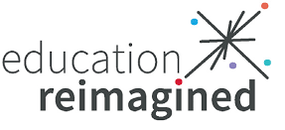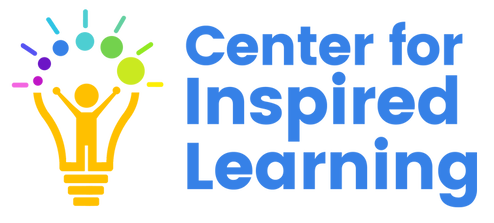We at the Center for Inspired Learning are not alone in our efforts to transform education to a personalized learner-centered model.
Organizations
|
Education Reimagined "is committed to the creation of a racially just and equitable world where every child is loved, honored, and supported such that their boundless potential is unleashed. We offer our vision as a beacon for all those dedicated to transforming education for every single child in America."
Read: A Transformational Vision for Education in the US |
|
Education Evolving "advances student-centered learning for all students, by supporting teachers designing and leading schools, and by advocating for policy that is open to innovation."
Read: Evidence for Student-Centered Learning |
Finland
|
Finland - With more recess time, learning through play, less emphasis on homework and testing, and free meals for all students, Finnish public schools are considered among the best in the world.
Read: Why Are Finland's Schools Successful? Read: Inside a Finnish school: What Finland can teach he world about education Read: 10 Reasons Why Finland's Education System is the best in the world |
KEY TERMS
Whole Classroom Instructional Model (WCIM) - The century-old structure of sorting children by age, randomly placing them in groups of 20 to 30, then teaching them the SAME material, at the SAME time, at the SAME pace, in the SAME way, by the SAME teacher. Children are seen as passive recipients of information and knowledge and rarely, if ever, take ownership of their learning. Students move between classrooms during the day, move “up” through grade levels over the years, and eventually leave school for the workforce, likely to never step foot again in the place where they spent so much of their childhood. Assessments in this rigid system are done primarily via test-taking. The teacher is at the center of the learning process.
Synonyms:
Learner-Centered Model (LCM) - The impetus for learning comes from a child's innate curiosity. This structure gives students control over the content of lessons and the learning method and promotes autonomy and active learning. The learner is at the center of the learning process. The teacher is seen as a facilitator of the learning process rather than "the sage on the stage."
Synonyms:
Inspired Learner Model (ILM) - A learner-centered education model developed by the Center for Inspired Learning that is designed to work in US public elementary schools using existing school infrastructure, budgets, and staffing. Its components include project and activity-based learning (PABL), peer mentoring, enhanced learning through technology, student choice, parental involvement, community engagement, and other mechanisms to support and encourage children to become lifelong curious learners. Besides traditional elementary school curriculum, ILM may include an emphasis on self-care, financial literacy, media and digital literacy, communication skills, conflict resolution, global citizenship, the arts, and learning at least one foreign language.
Synonyms:
- Standardized Education
- Teacher-Centered Learning
- One-Size-Fits-All Instructional Model
- Factory (Assembly Line) Education Model
- Taylorist Model
- Coercive Schooling
Learner-Centered Model (LCM) - The impetus for learning comes from a child's innate curiosity. This structure gives students control over the content of lessons and the learning method and promotes autonomy and active learning. The learner is at the center of the learning process. The teacher is seen as a facilitator of the learning process rather than "the sage on the stage."
Synonyms:
- Individualized Learning
- Student-Centered Learning
- Adaptive Learning
- Blended Learning
- Personalized Learning
- Competency-Based Education
Inspired Learner Model (ILM) - A learner-centered education model developed by the Center for Inspired Learning that is designed to work in US public elementary schools using existing school infrastructure, budgets, and staffing. Its components include project and activity-based learning (PABL), peer mentoring, enhanced learning through technology, student choice, parental involvement, community engagement, and other mechanisms to support and encourage children to become lifelong curious learners. Besides traditional elementary school curriculum, ILM may include an emphasis on self-care, financial literacy, media and digital literacy, communication skills, conflict resolution, global citizenship, the arts, and learning at least one foreign language.
A 501(c)(3) Nonprofit - EIN 82-4387189






